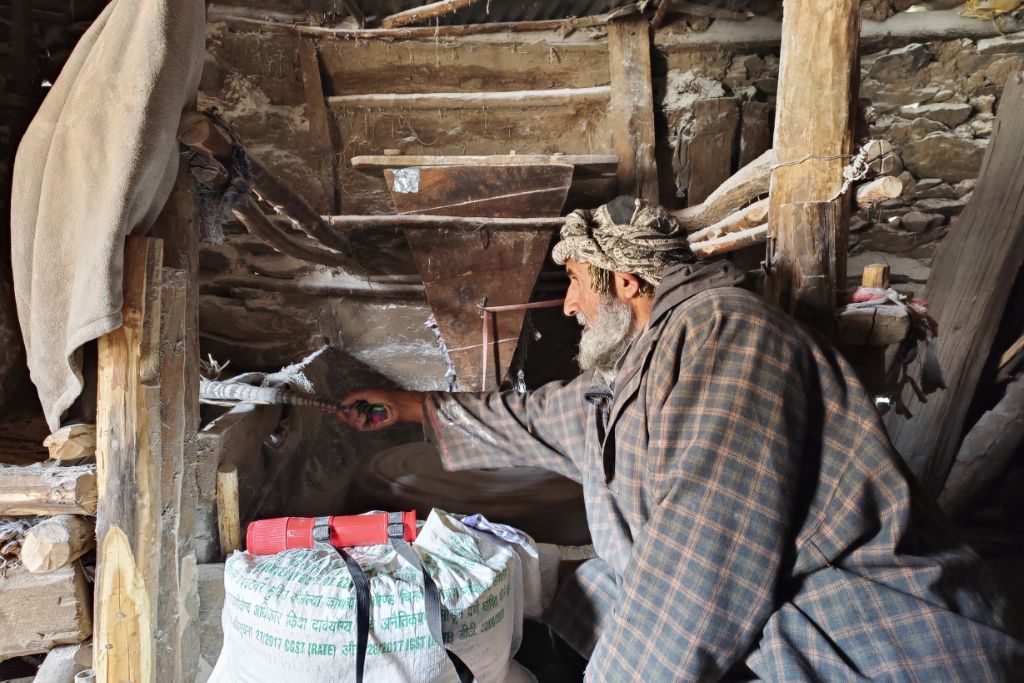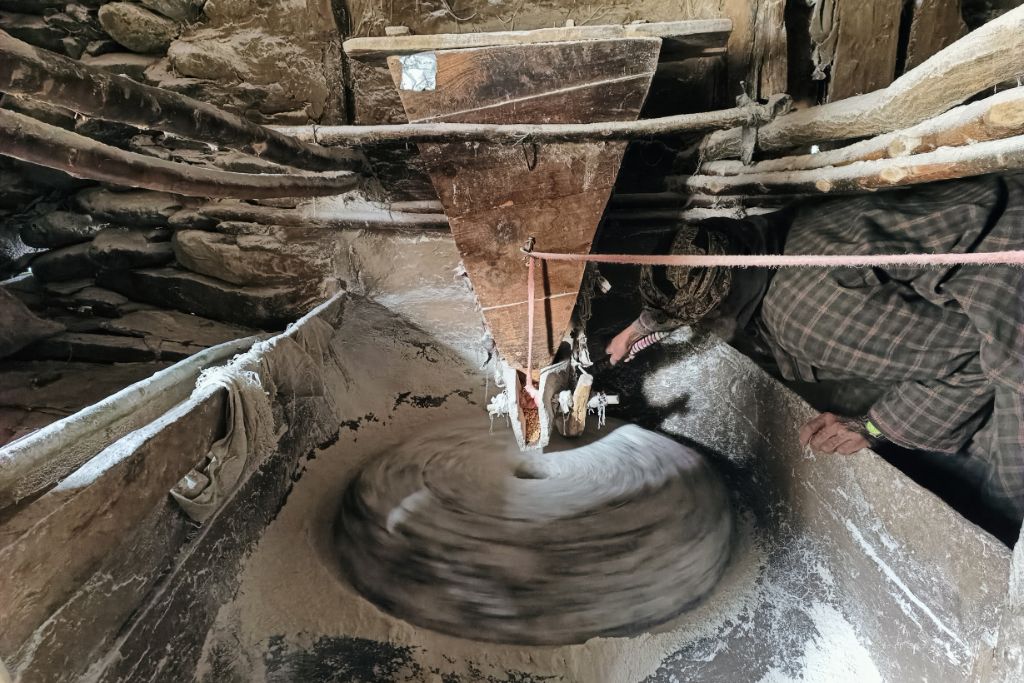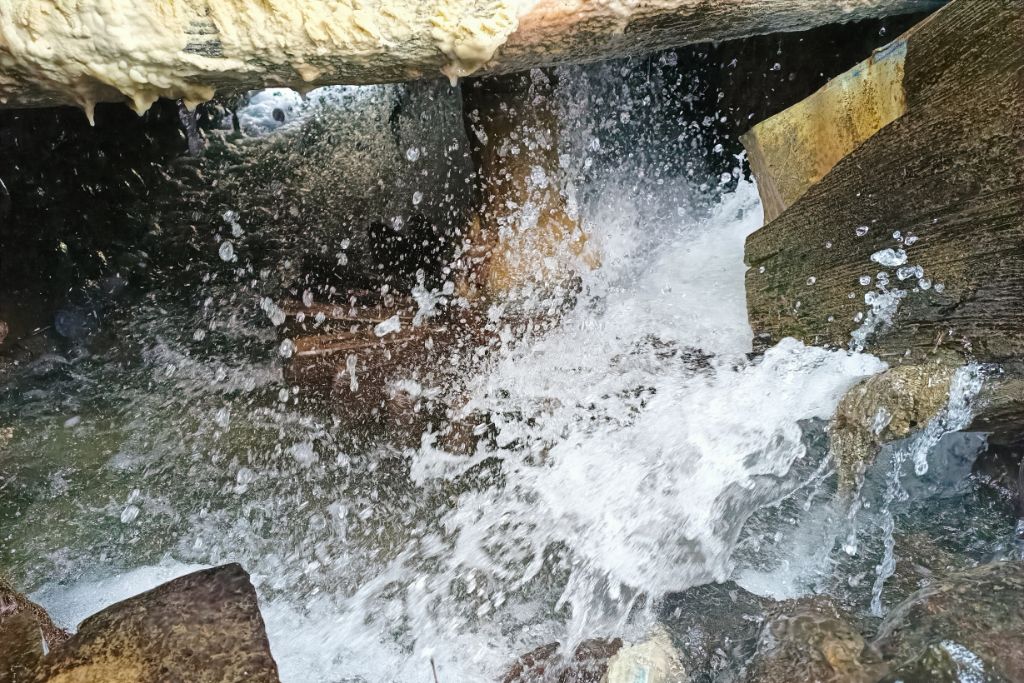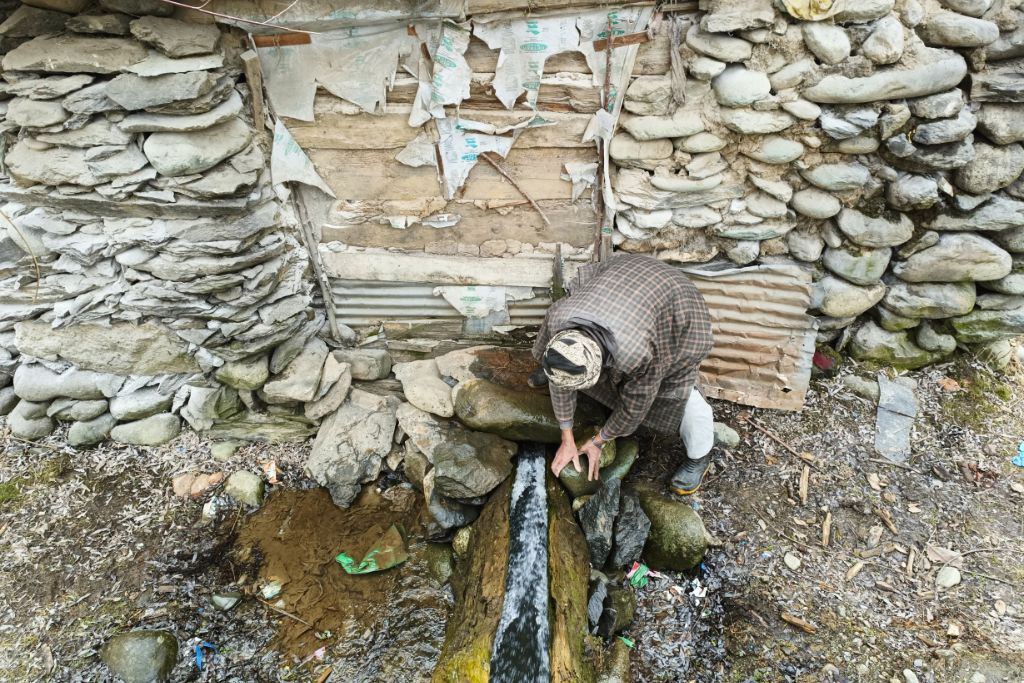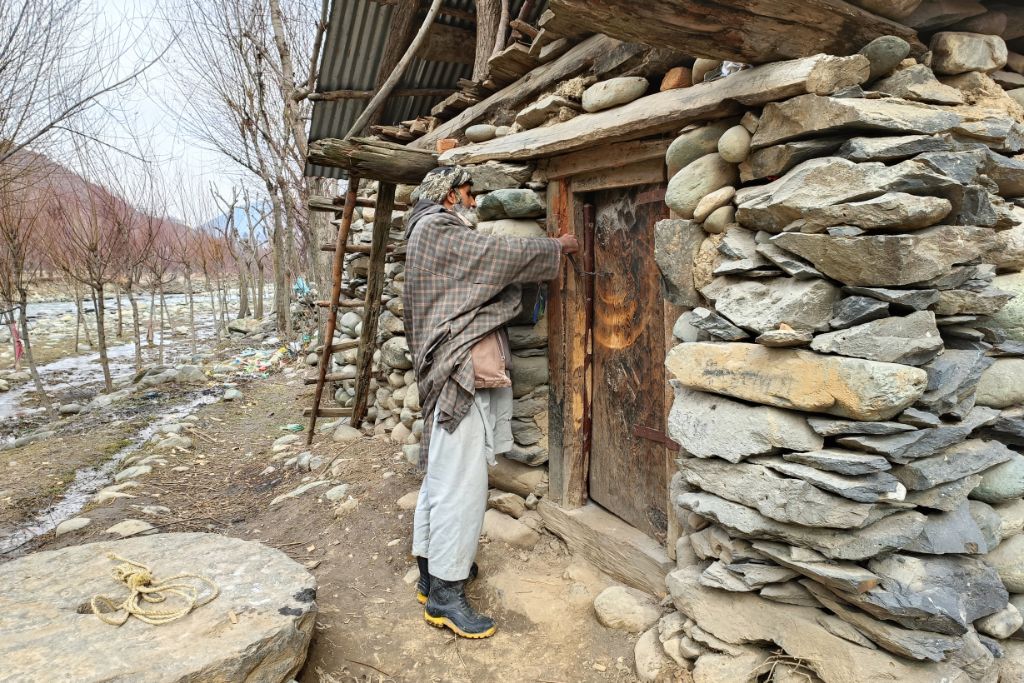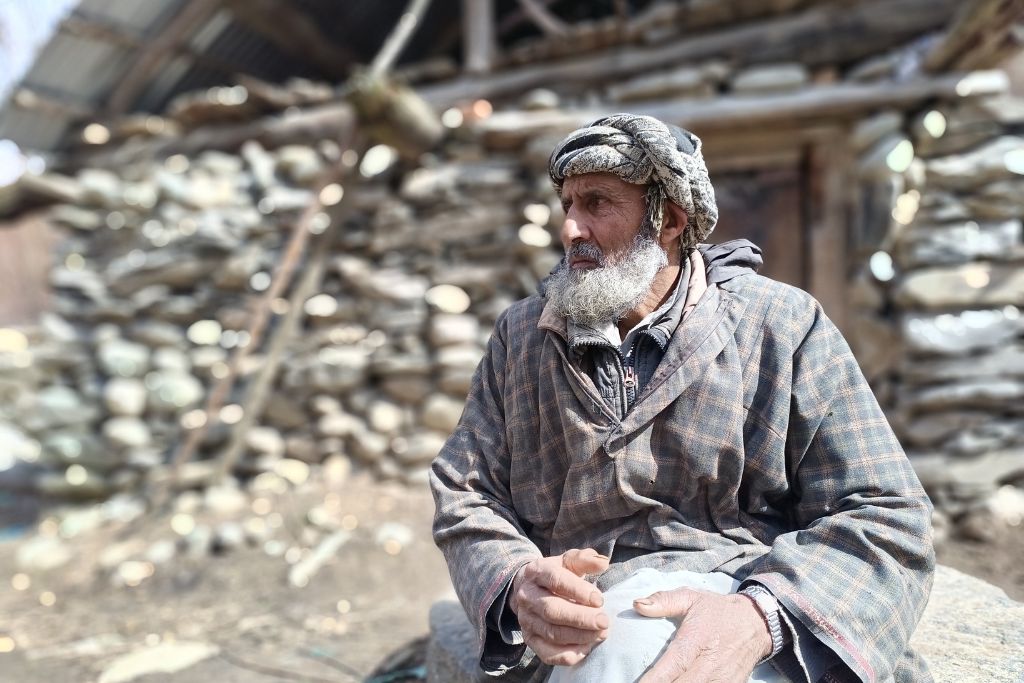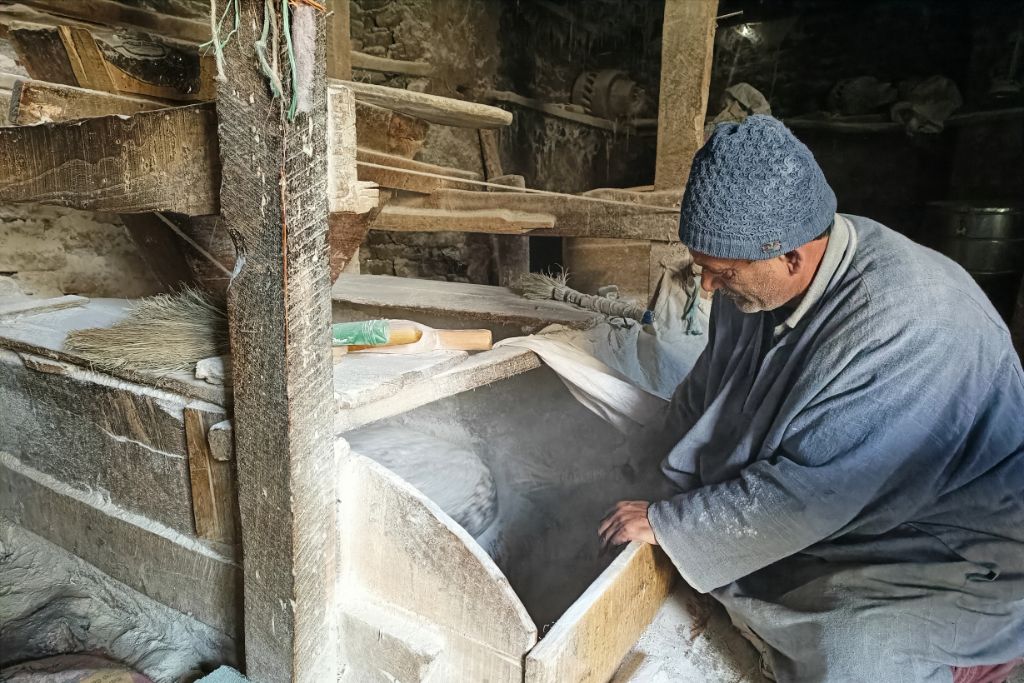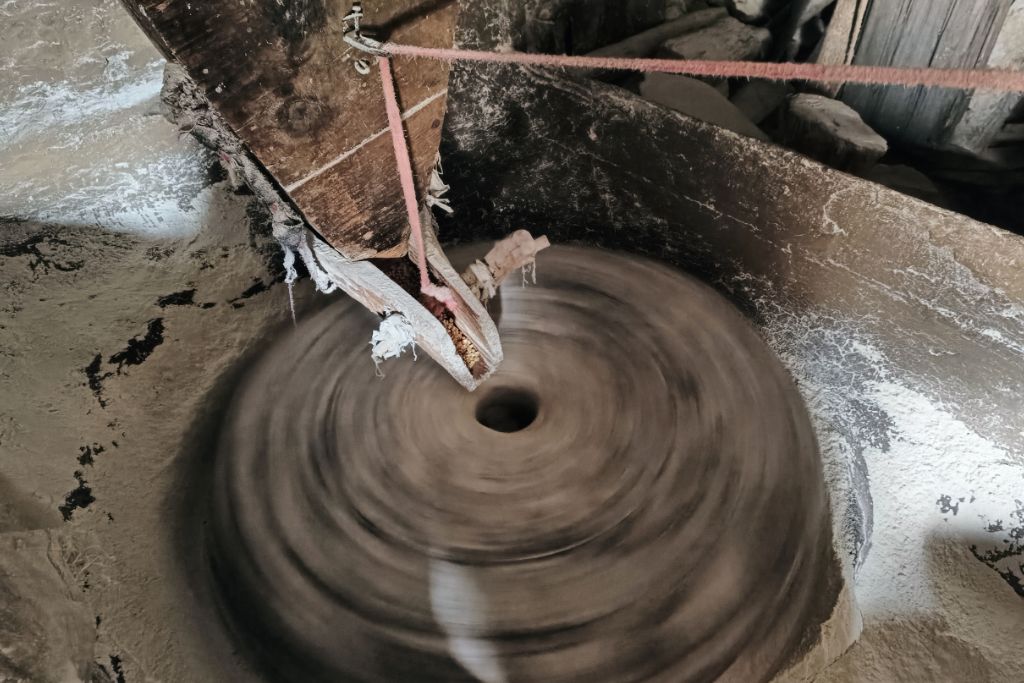
The last of Kashmir’s flour water mills
Traditional water flour mills once thrived in Kashmir but only a few survive now. Called aab-e-gratte, these mills are cost-effective and run on water current from streams. They are mostly operated by the elderly – perhaps the last generation pursuing this profession.
Abdul Kareem Khari, 65, runs a traditional flour mill in his village Danipora in South Kashmir that was started by his father decades ago. He says he will be the last one in his family to operate the mill, as the next generation is not willing to take up this profession.
The traditional water flour mill grinds wheat, corn and maize by placing the grains between the rotating wheel-shaped stones. This traditional way of grinding is time-consuming but cost-effective.
A wooden turbine placed underneath the mill plays a critical role. The fast-flowing water flows through a channel and then falls on the turbine.
Khari says he will run the mill till he physically can. The next generation does not find this profession lucrative enough.
The mills are mostly 10×14 feet in size. Water is diverted towards the flour mill through a small stream from a river.
Like Abdul, the 60-year-old Mohammad Jabbar Ganie is also the last one from his family who is running the traditional chakki (flour mill) in the Kokernag area of the Anantnag district.
Ganie says these traditional flour mills were once present in every village in Kashmir. People had to wait in a queue to give grains for grinding.
Abdul Rasheed Saradan, 67, has been running a traditional flour water mill in Dakhana – a pastoral hamlet in South Kashmir – for 45 years. His father started the mill almost 90 years ago. Despite the meagre income, he is happy to keep his father’s legacy alive.
The lead image at the top shows the traditional water flour mill grinding wheat, corn and maize in between rotating wheel-shaped big stones (Photo by Aamir Ali Bhat)
Aamir Ali Bhat is a journalist and independent researcher based in Kashmir. He writes on human rights violations, politics and the environment.
